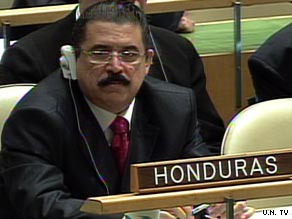Police Search Jackson Doctor's Home In LA
Officers swooped on Dr Conrad Murray's gated home in Las Vegas amid reports he gave the star a fatal dose of the powerful sedative propofol hours before his death.
Drug Enforcement Administration (DEA) agents and detectives from the Los Angeles Police Department (LAPD) executed a search warrant for Jackson's medical records.
A separate raid took place across town at the doctor's offices.
Dr Murray's lawyer, Edward Chernoff, said: "The search warrant authorised investigators to look for medical records relating to Michael Jackson and all of his reported aliases.
"Dr Murray was present during the search of his home and assisted the officers.
"Investigators left Dr Murray's home around noon, seizing cell phones and a computer hard drive."
Last week, police raided the doctor's office in Houston searching for "evidence of the offence of manslaughter".
The results of toxicology tests on Jackson's body will be released this week, said the Los Angeles Coroner's office.
Pathologists reportedly discovered a deadly cocktail of prescription drugs in his blood.
Propofol is used in hospitals to induce unconsciousness in patients ahead of major surgery.
Police search Murray's home
Experts say the drug should only be administered by a trained anesthesiologist under strict medical conditions.
The possibility that Dr Murray gave Jackson the drug intravenously has sparked speculation that he may be charged over his death.
TMZ.com reported that Dr Murray had told police in an interview he gave Jackson propofol via an IV drip.
It said police believe he may have fallen asleep while the drug was being administered, and woke up to find the singer already dead.
The star's family say they have "unanswered questions" about the death.






